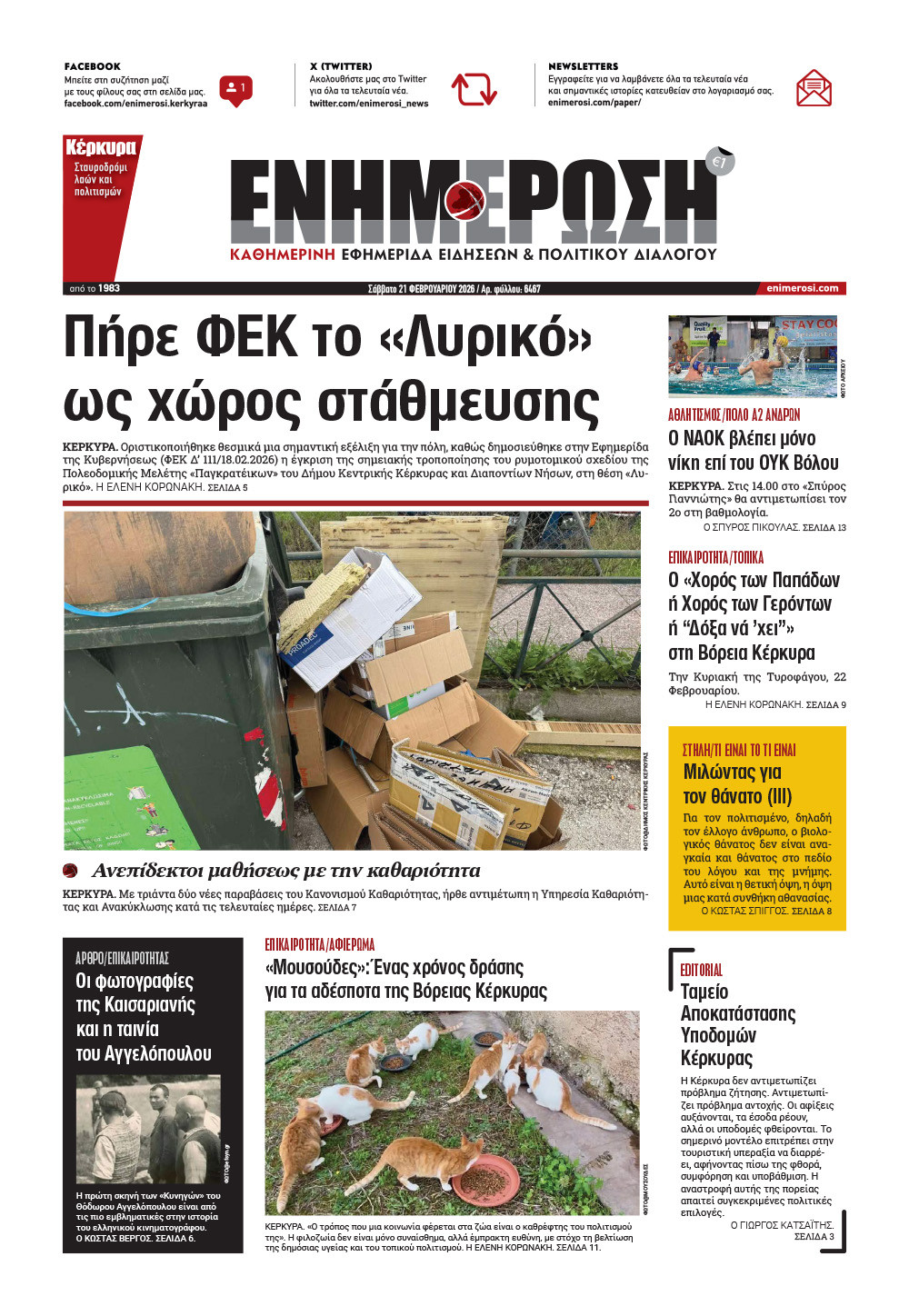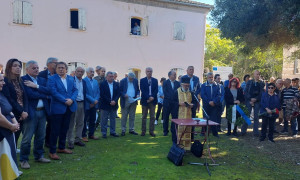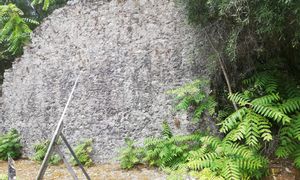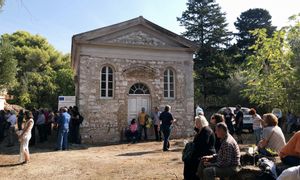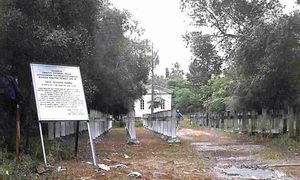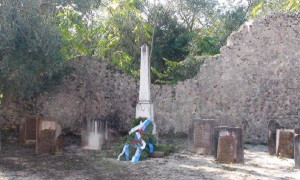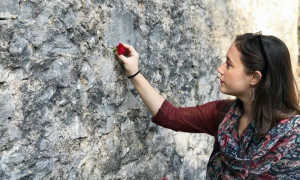Remembrance ceremony for those executed on Lazaretto during civil war
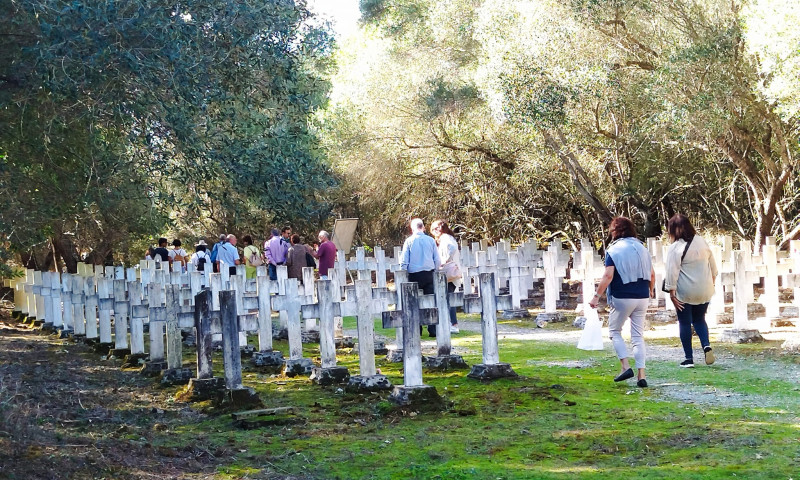
CORFU. The ceremony was organised by Lazaretto Association in collaboration with Central Corfu Municipality.
Homage was paid on Sunday to those lost their lives in the horrors of the civil strife by the Lazaretto Association in collaboration with the Municipality of Central Corfu at the annual commemoration event for those executed in one of the darkest chapters of Greek history.
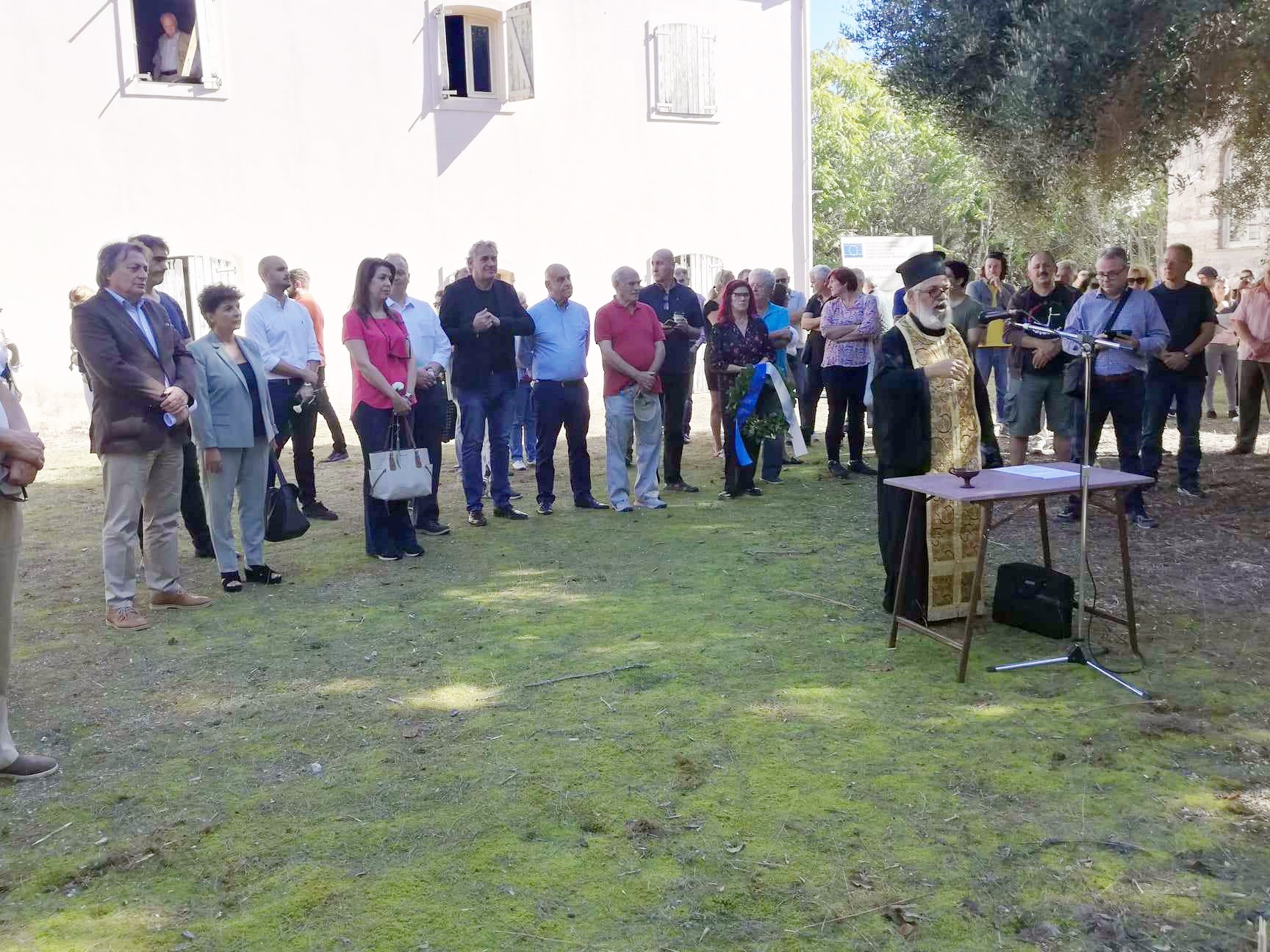
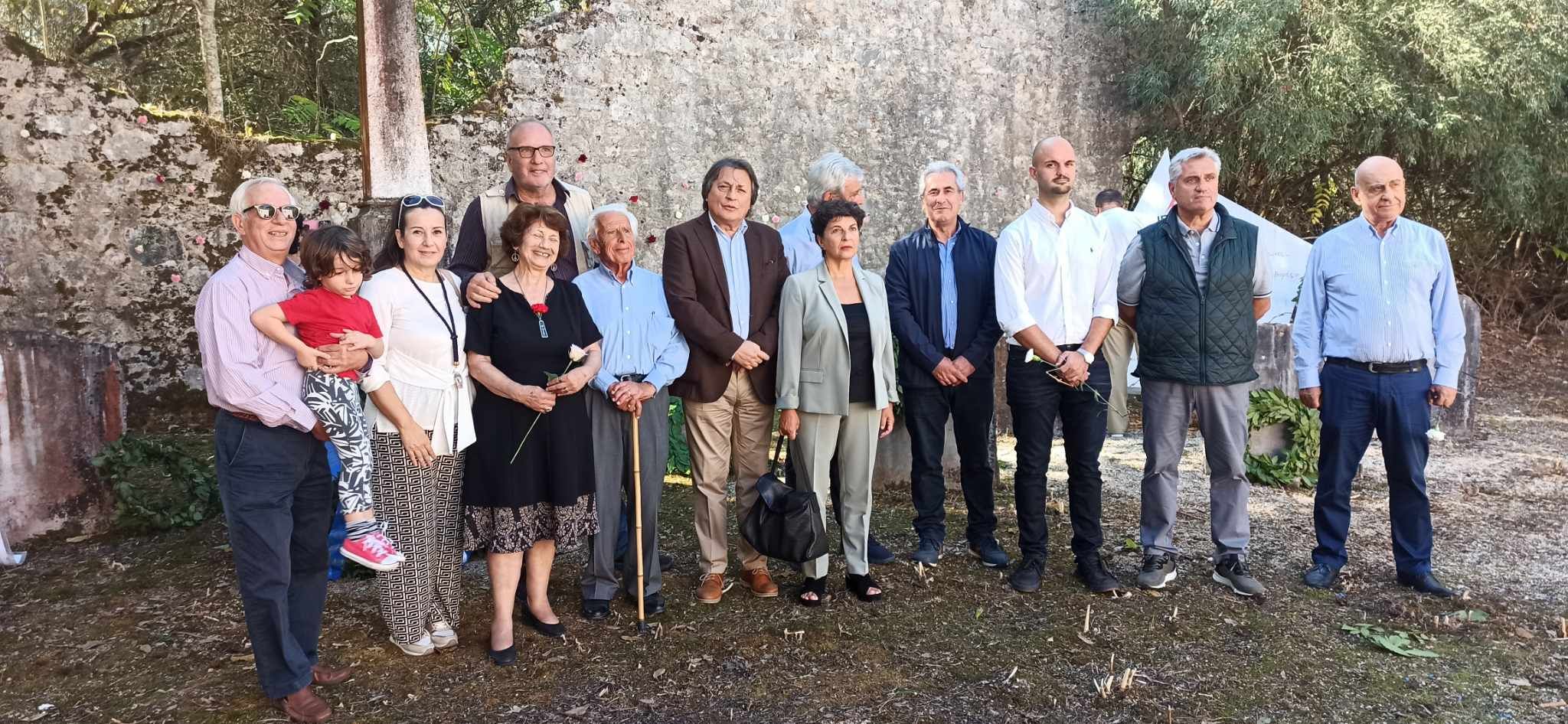
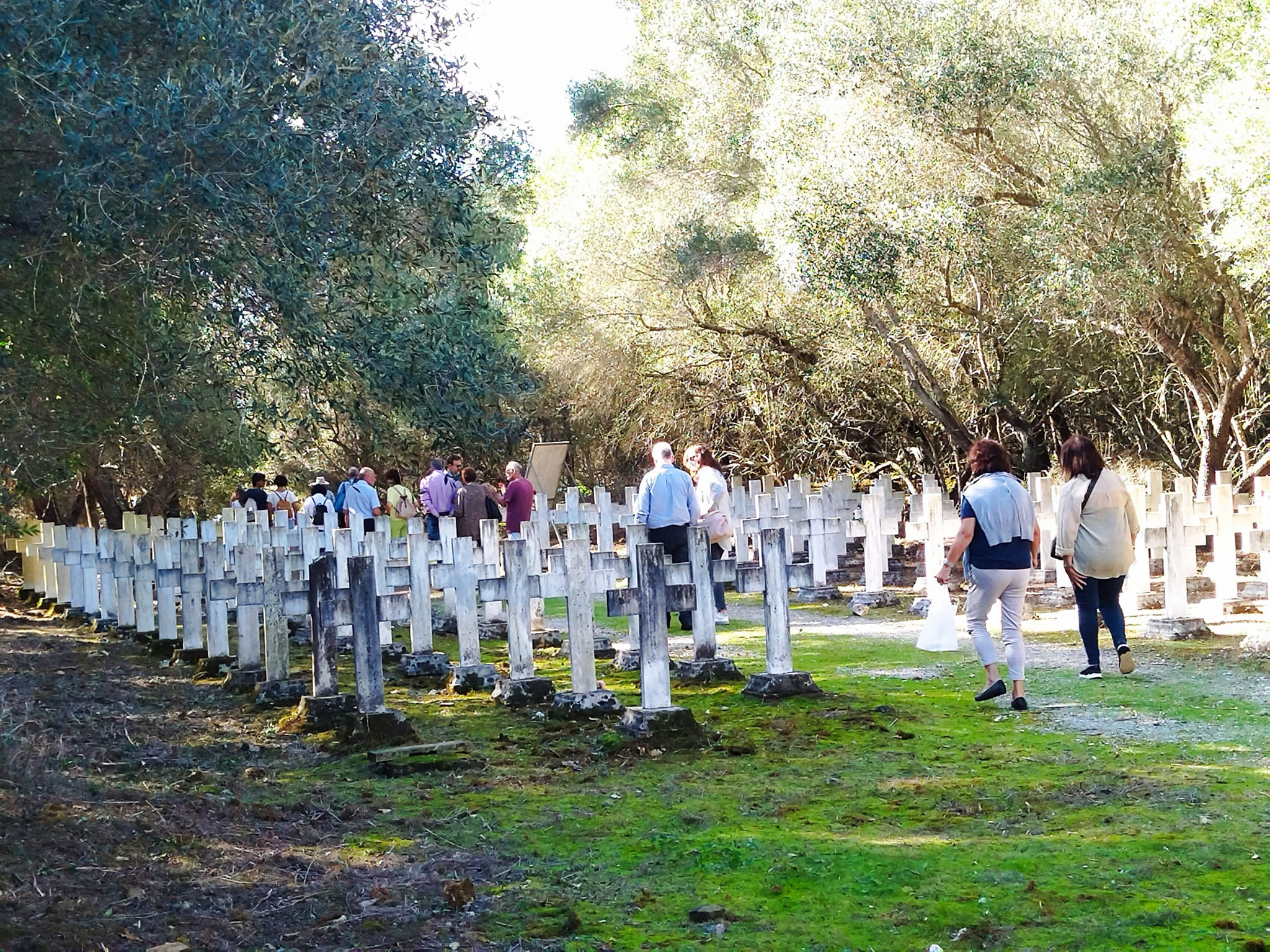
On Saturday morning, wreaths were laid at the National Resistance Monument, the Monument in Spilia for the Jews who were executed, and the Monument for the hero Kostas Georgakis.
Lazaretto islet was used as an execution site for prisoners, mainly communists, with the first executions taking place in 1947 and the last in 1962.
The event was attended by friends and relatives of the executed, as well as the Mayor Meropi Ydraiou, representatives from SYRIZA, PASOK, Ekkinisi and AR.S.I. The newly elected Municipal Authority led by Stefanos Poulimenos was represented by municipal councillors Pantelis Yiannoulis and Spyros Nerantzis.
Also in attendance was the SYRIZA MP for Halkidiki and Shadow Culture Minister, Kyriaki Malama, who is visiting Corfu these days, accompanied by Corfu MP Alekos Avlonitis.
118 executions
Those executed were mostly young people from various parts of Greece, fighters of the National Resistance and the Democratic Army. According to Corfu Municipality records from 1947 to 1950, there were a total of 118 executions.
In Lazaretto, there remains a church, a section of the quarantine wall, the cemetery for those executed, and the wall against which they left their last breath. On this wall, you can still see the bronze rings where their hands were tied and the bullet holes.
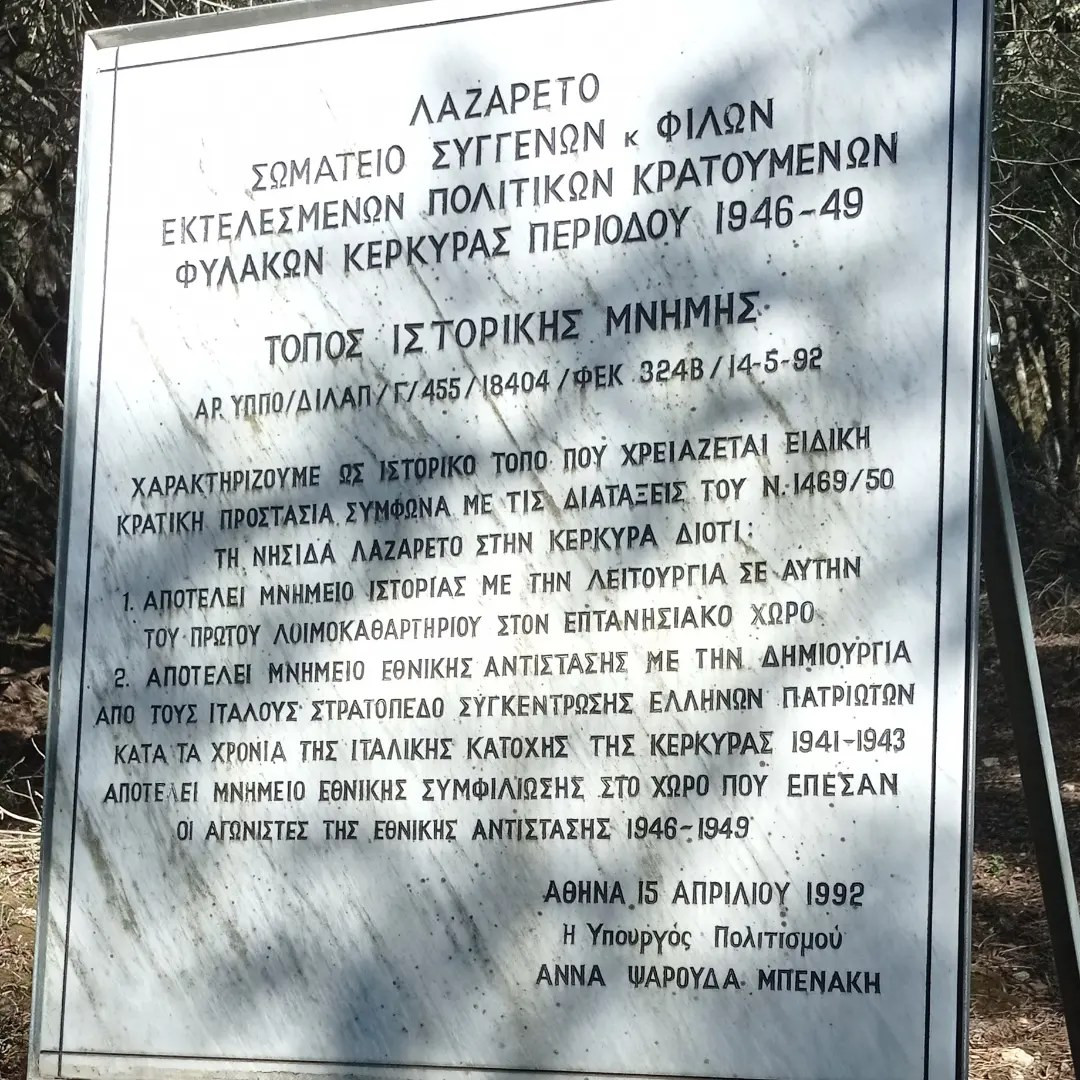
Designated historical site
By decision of the Ministry of Culture in 1992, the islet of Lazaretto in Corfu was designated as a historical site in need of special state protection because:
a) It constitutes a monument of medical history with the operation of the first quarantine facility in the Ionian region.
b) It serves as a monument for the National Resistance with the creation of a concentration camp for Greek patriots by the Italians during the years of the Italian Occupation of Corfu (1941-43).
c) It stands as a monument of National Reconciliation in the area where the fighters of the National Resistance fell (1941-1949).
The designation of the islet as a historical site was the result of the long-standing and persistent efforts of the Lazaretto Association of relatives and friends of the executed political detainees during the 1946-49 period. This initiative was taken by the relatives and fellow-detainees of the executed. With the care and at the expense of the Association and under the supervision of the Municipality of Corfu, the enhancement and redevelopment of the area have been carried out to this day, including the creation of pathways, a memorial, a museum building and a chapel.
CHRISTINA GEREKOU



